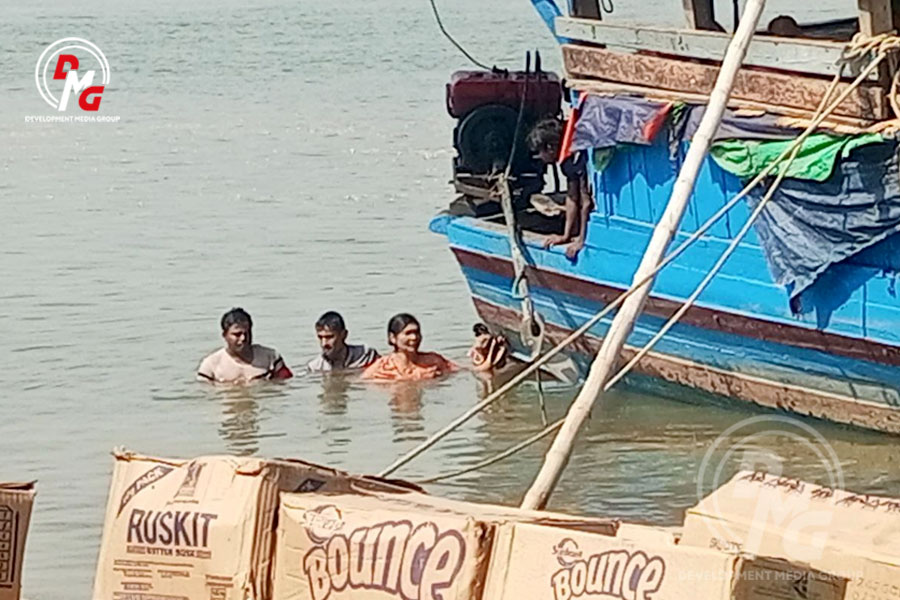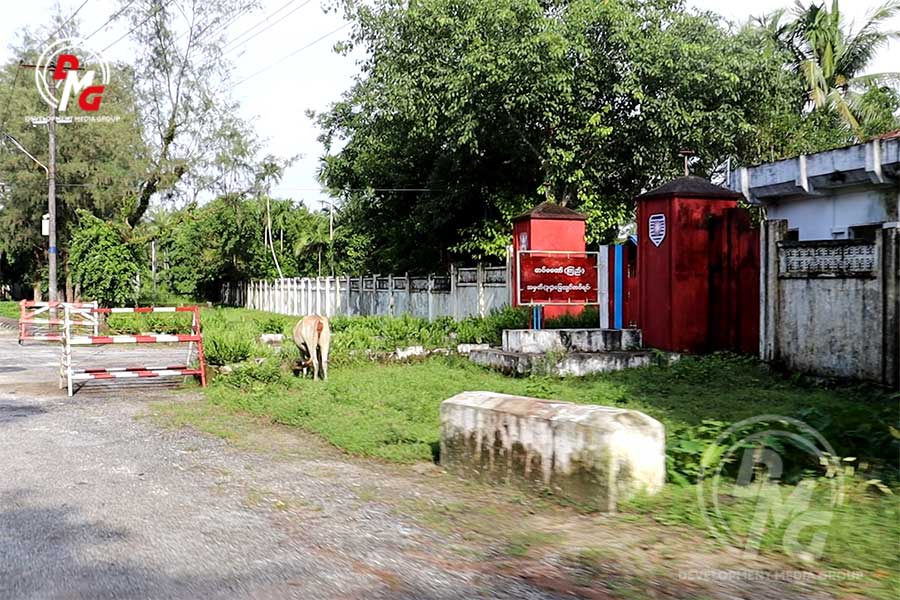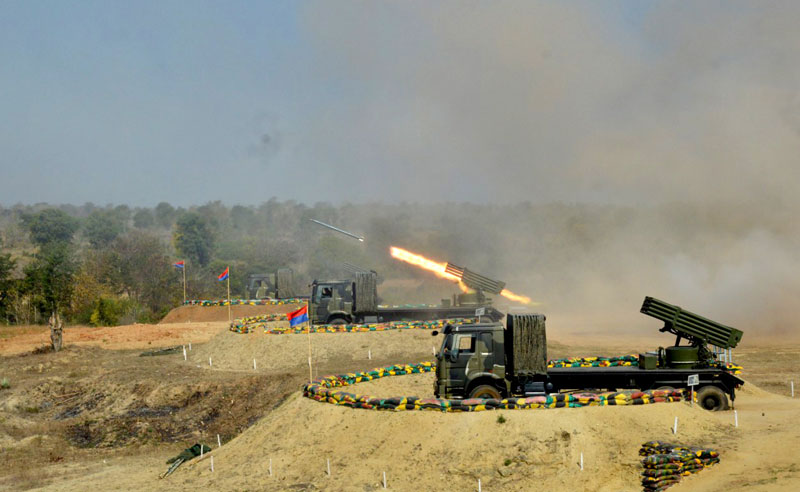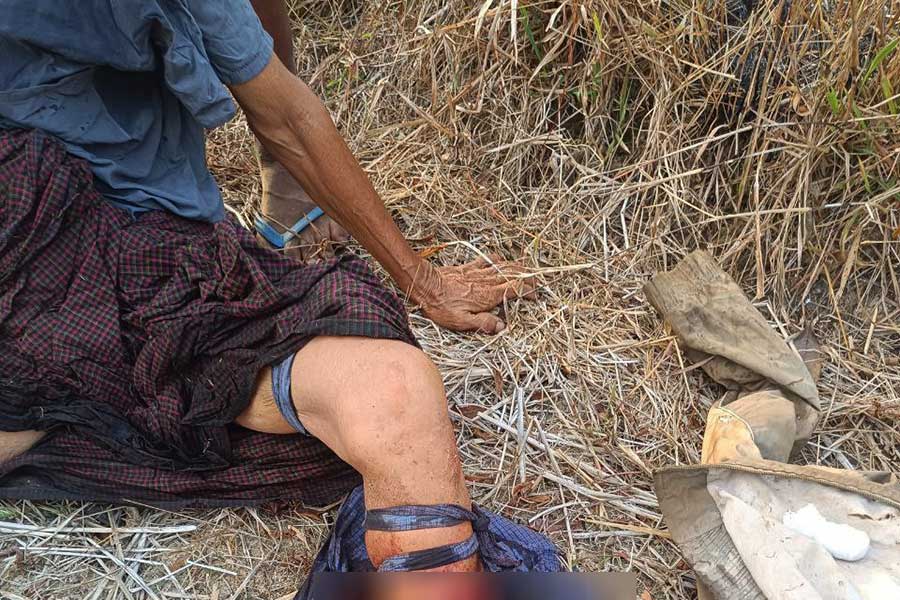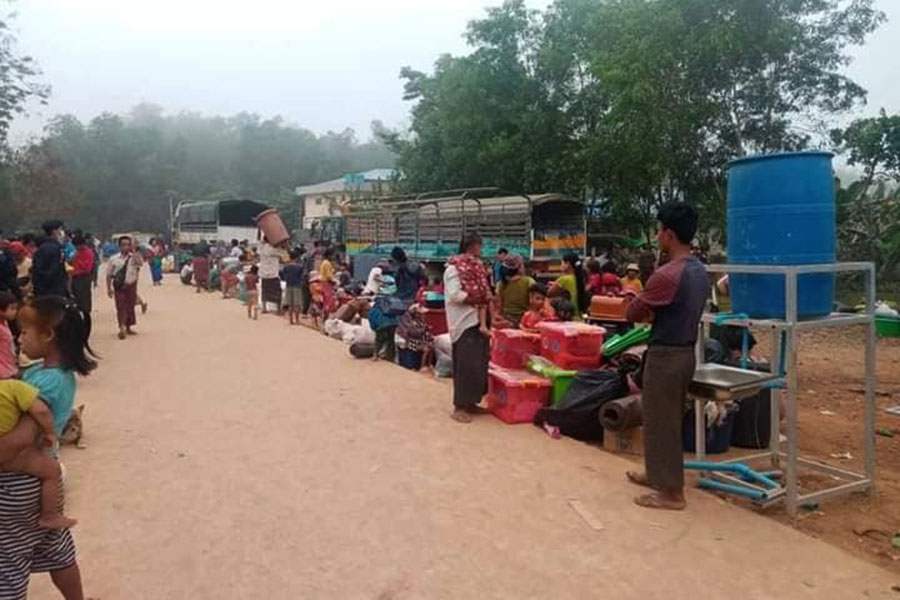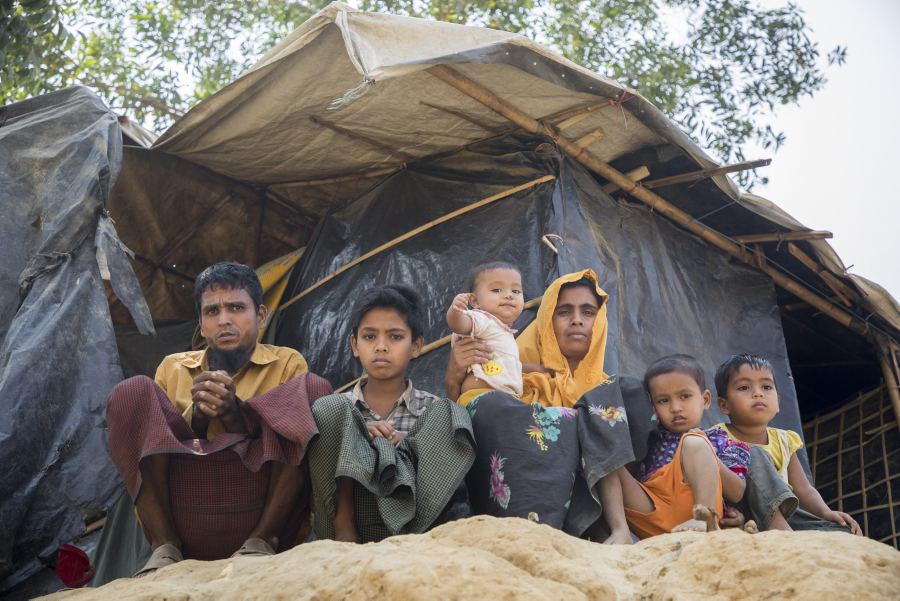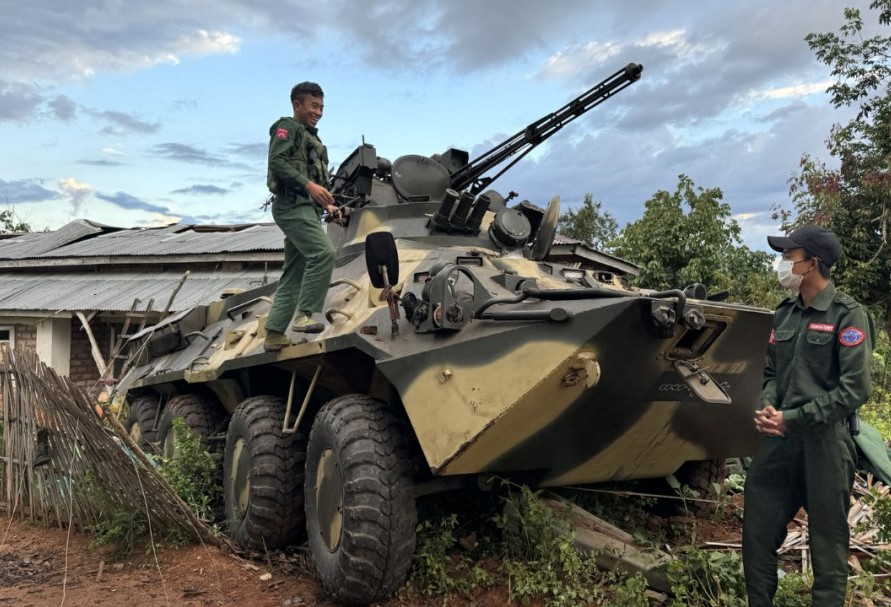- Regime shelling kills two civilians, injures another in two Arakan State townships
- Septuagenarian loses leg in landmine explosion in Kyaukphyu Twsp
- Muslim communities accuse regime of stoking racial strife
- Dozens of Muslims’ deaths blamed on diarrhoea in Sittwe Twsp
- Junta airstrikes rattle Mrauk-U Twsp village
Thousands of Ann residents lack food, medical supplies due to Tatmadaw blockade
Over 4,000 local residents of more than 20 villages in the Daletchaung village-tract of Arakan State’s Ann Township are finding it difficult to bring in food and medical supplies as Myanmar’s military has blocked both water and road routes.
14 Dec 2020
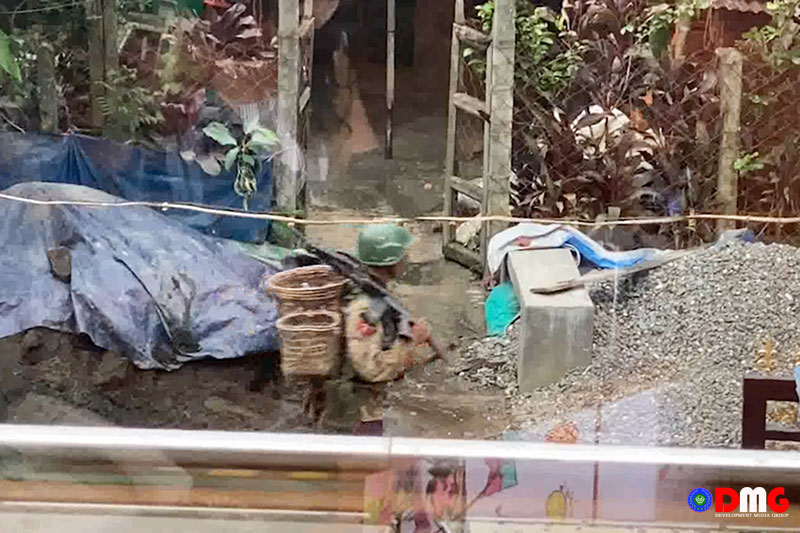
Aung Htein | DMG
14 December 2020, Sittwe
Over 4,000 local residents of more than 20 villages in the Daletchaung village-tract of Arakan State’s Ann Township are finding it difficult to bring in food and medical supplies as Myanmar’s military has blocked both water and road routes.
Previously, the routes were only partially blocked and locals were able to buy rice at Kazukaing village-tract through Mel Let Maung village-tract, which is a four-hour drive from Daletchaung village-tract, according to locals.
But Myanmar’s military has blocked the route through Mel Let Maung since early December, according to Ann resident Ko Myo Lwin, a humanitarian volunteer.
“As Tatmadaw troops have entered the route toward Kazukaing, that area is no longer accessible. Despite the ceasefire, [the military aka Tatmadaw] has imposed further restrictions on transportation of foodstuffs to Daletchaung village-tract,” he said.
Local residents of Daletchaung village-tract are currently feeding themselves with paddy that they were able to grow on some of their farms during the rainy season, said a resident of Alae Kyun village who declined to be named, citing security concerns.
DMG was unable to contact Myanmar military spokesman Major-General Zaw Min Tun for comment.
Daletchaung village-tract is made up of nearly 40 villages, with a population of over 10,000 people who are mainly engaged in farming.
Following the blockade of transportation routes, over 6,000 residents from more than 20 villages have left for Ann and Kangyidaunt towns, and only some 4,000 people remain in the village-tract.
Myanmar’s military and the Arakan Army (AA) held landmark online talks on November 25, during which the transport of supplies to villages where locals are in need due to past fighting was reportedly discussed.
As of November 2, the number of IDPs in Arakan State was reported at more than 236,000 due to the armed conflict between the Tatmadaw and the Arakan Army over the past two years. But about a month later, there were some 190,000 IDPs in Arakan State as many IDPs have returned home recently with stability improving in their areas, according to data compiled by the Rakhine Ethnic Congress (REC).

